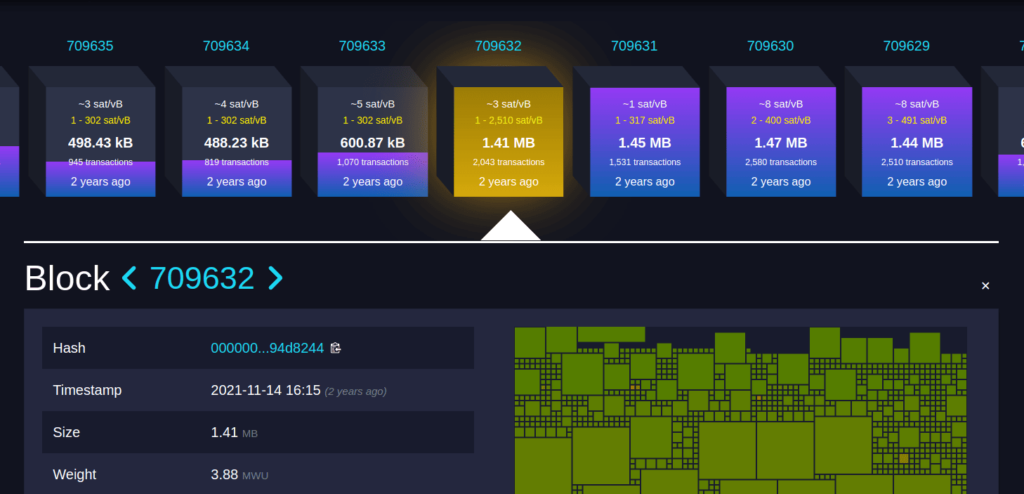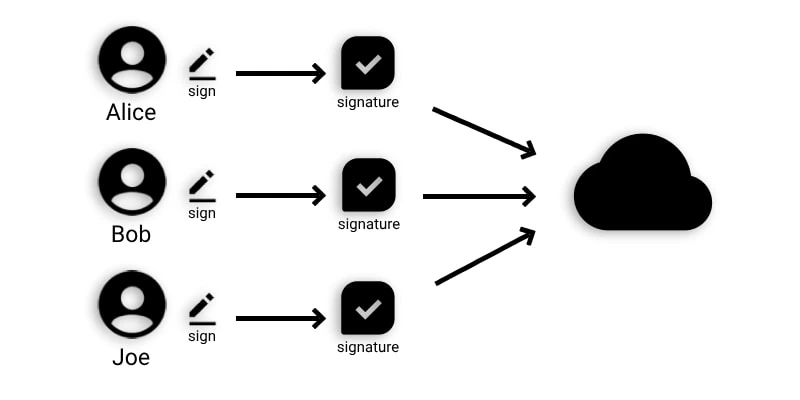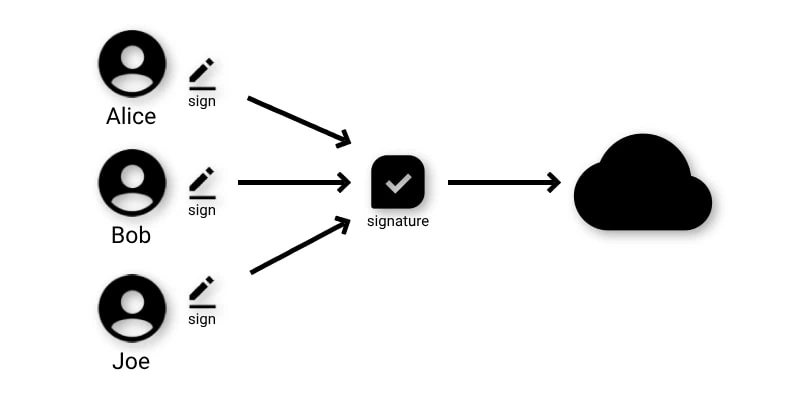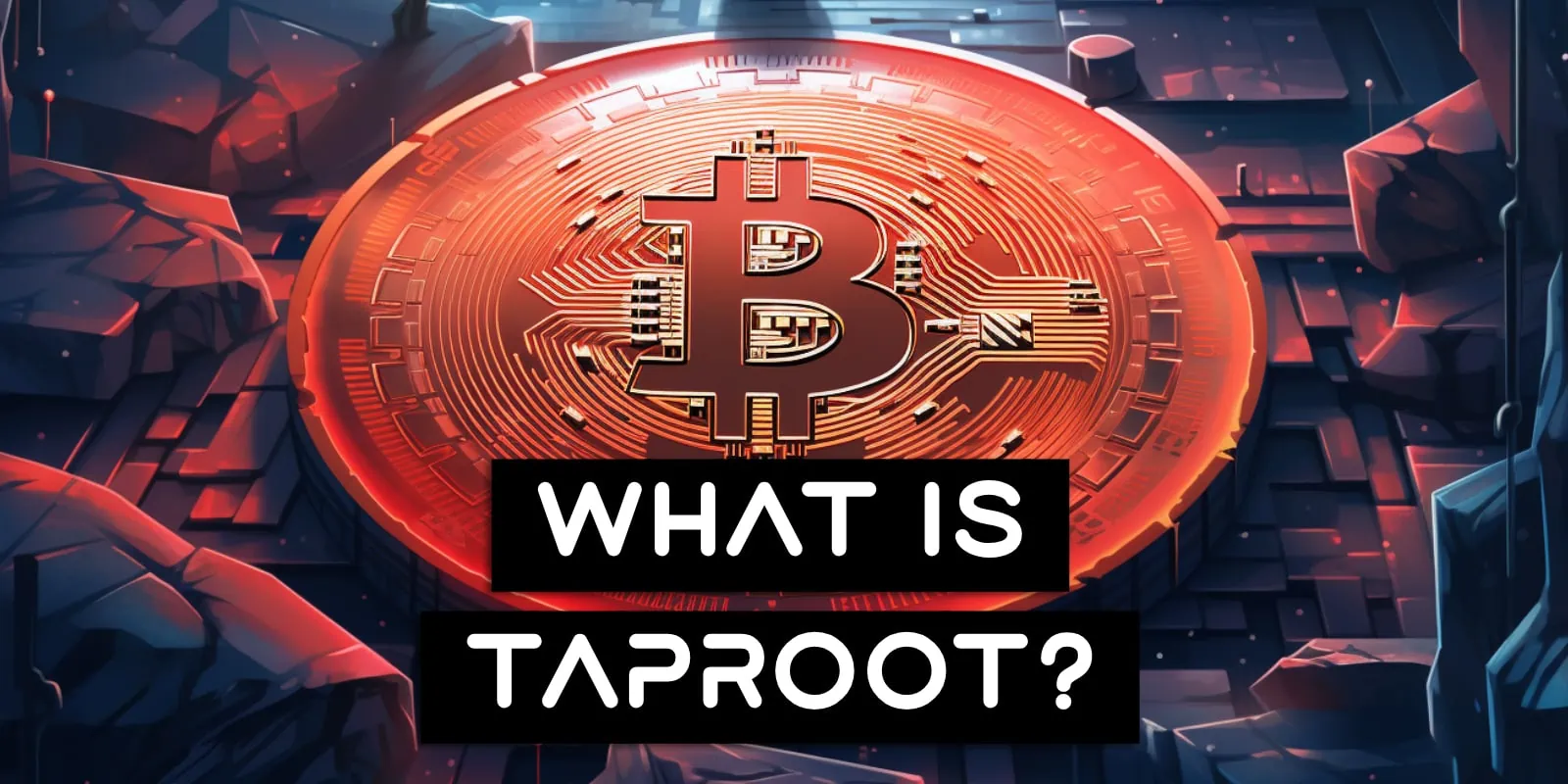One of the biggest Bitcoin Myths is that it’s an “old technology” that never changes. This obviously isn’t true and one of the most recent examples of these constant changes is the massive Bitcoin Taproot soft fork. Taking years to plan, build and execute, it’s something all investors should be aware of given the long term impacts it will have on the network.
Contents
What Is Taproot Bitcoin?
Taproot is an upgrade to the Bitcoin network that was activated at block 709,632 on the 14th of November, 2021. While most upgrades to Bitcoin are usually small, Taproot was a substantial upgrade that increased the networks security, privacy and speed whilst at the same time decreasing its fees, transaction costs and processing requirements.
What Does Taproot Do?
The Taproot upgrade was a soft-fork upgrade with miners signalling their support for it with a 90% consensus. It improved the Bitcoin network in a number of ways by simultaneously activating three separate Bitcoin Improvement Proposals (BIPs):
We’ll cover each of these in detail below, but their activation enabled:
- Increased Security: When you create a new transaction to spend your bitcoin, you must sign it to show that you have the authority to spend those bitcoins. Bitcoin initially used the Elliptic Curve Digital Signature Algorithm (ECDSA) to sign transactions. Schnorr signatures replace this and are more secure than ECDSA.
- Increased Privacy: Due to the combination of the three BIPs, less information is broadcast to the Bitcoin network during a transaction. This increases privacy for users, especially those using Multisig Wallets as their transactions become indistinguishable from single sig ones
- Increased Speed: The new Schnorr signatures allow complex transactions to be verified much quicker than via ECDSA as they can be done in batches rather than one at a time
- Decreased Transaction Size: As there is less information published to the Blockchain, it means that each transaction is smaller in kilobytes. This greater efficiency means that the Bitcoin network can process a higher number of transactions
- Decreased Fees: Since Transaction Fees are only based on how big in kilobytes a transaction is, the decreased transaction size also translates to a decreased fee as well
- Improves Smart Contract Use: Due to the speed and efficiency improvements of the new Schnorr signatures, it allows for a significant improvement in Bitcoins ability to handle Smart Contracts. While they have always been a part of Bitcoin, Taproot has allowed them to scale much better than before
The Bitcoin Taproot Upgrade

While Bitcoin Forks can often be a bit contention, Taproot was such a fantastic upgrade right across the board that virtually everyone eagerly welcomed its activation. It even had near universal support from miners as it increased the transaction throughput. More transactions meant more fees in each block which increases their profits.
As noted, the upgrade was made up of three separate BIPs so let’s look at each one a bit closer.
Schnorr Signatures (BIP-0340)
While the newer Schnorr signatures is used for both key generation and verification, a core part of this upgrade was the introduction of its key aggregation capability. Previously, with ECDSA a Bitcoin Multisig transaction would require all parties to add their signatures to the transaction data. This data would then be stored on the blockchain forever, taking up precious block space and costing more in fees.

With Schnorr signatures, users can combine multiple public keys and signatures into one and publish this combined data to the blockchain instead. This not only reduces the size of the transaction, but also increases the privacy of the users as their individual signatures aren’t made public. Multisig transactions also now look identical to a single sig transactions improving privacy even further.

Schnorr signatures are also faster, more secure, and easier to process meaning that as exchanges, wallets and users adopt Taproot, the better Bitcoin becomes.
Taproot (BIP-0341)
In order to broadcast a valid Bitcoin transaction you not only need a valid signature to prove that you have the authority to spend those bitcoins, you also need to include the spending script. While some scripts are simple, others can be quite complex with multiple conditions.
BIP-0341 introduced Merkelized Alternative Script Trees (MAST) which hides any preset conditions. If outcomes of the script are not used, then they are not included in the transaction. This reduces the size (in kilobytes) of the transaction making it take up less room on the blockchain. The reduced size also means it costs less in fees too.
At the same time this BIP also introduced a new Bitcoin Address called Pay-to-Taproot (P2TR) which further increases privacy by making all Taproot outputs appear similar.
Taproot Scripts (BIP-0342)
The final BIP-0342 involved in the Taproot upgrade updated the original scripting language of Bitcoin. This was needed to enable the use of the new Schnorr signatures and P2TR address types plus it also made it easier to implement more script updates to Bitcoin in the future.
Taproot Addresses
As said above, with the introduction of Taproot a new address type was born. This new address is referred to as Pay To Taproot (P2TR) and is classified as Native SegWit v1. All Taproot addresses are SegWit and output SegWit addresses.
Bitcoin Taproot Vs Native SegWit
Prior to the Taproot upgrade there was another upgrade to Bitcoin called Segregated Witness or SegWit. This introduced its own new address type called Pay To Witness Public Key Hash (P2WPKH) and is classified as Native SegWit v0.
P2WPKH (Native SegWit v0) start with bc1q
This address type also introduced a new address format called Bech32. Bech32 (pronounced “besh 32”) addresses are used to pay native SegWit outputs and always start with “bc1”. As P2WPKH uses the Bech32 address format with an encoding version of 0 (hence the v0) they start with bc1q because “q” encodes to 0 in Bech32.
Bech32 addresses are an improvement because they don’t used mixed case and are thus, case insensitive. This not only gives a cleaner look, but also reduces mistakes too. To help further reduce mistakes made, they include an error correction code that catches almost all typos and can even identify where the typo has occurred in some cases.
As the Taproot upgrade came after SegWit, the new P2TR addresses are also used to pay native SegWit outputs and thus, also start with “bc1”. They again use the Bech32 address format, but this time with the encoding version of 1 (hence the v1) and start with bc1p because “p” encodes to 1 in Bech32.
P2TR (Native SegWit v1) start with bc1p
How Does Taproot Affect Bitcoin?
As mentioned, Taproot was a major upgrade to the entire Bitcoin network. It introduced a new address type, made transactions more efficient, smaller, faster to process and increased privacy and security. It also had the major impact of enabling Bitcoin smart contracts to be much more usable due to Schnorr signatures being able to aggregate multiple signatures into one.
This has better positioned Bitcoin in the world of Decentralised Finance (DeFi) and has also enabled easier script upgrades in the future. Taproot has also enabled further great improvements in the Lightning Network and has made the Taro protocol possible.
How Does The Taproot Upgrade Help Bitcoin Miners?
Most Bitcoin miners primary focus is on their return on investment or ROI. Core to this is how many transactions can fit in each block as the more transactions there are in each block, the more fees they get to collect.
As Taproot reduces the size – in kilobytes – of P2TR transactions, this means that more of them can fit in the same sized block. More transactions means more fees which means more money for the miners.
As Taproot also significantly improves the usability of Bitcoin smart contracts and other more complex transactions, this again encourages more transactions of these types and thus higher fees. Overall Taproot was a very positive upgrade for miners which is why there was such wide, unanimous support for the upgrade.
FAQ
Does Coinbase Support Taproot?
No. As of the latest information from their X account in July 2022, they do not support paying out to Taproot addresses and have no time frame for when this will be supported.
Is Taproot Good For Bitcoin?
Yes. While most upgrades to Bitcoin are usually small, Taproot was a substantial upgrade that increased the networks security, privacy and speed whilst at the same time decreasing its fees, transaction costs and processing requirements.
Who Developed Taproot Bitcoin?
Taproot was developed by a number of Bitcoin Core developers. Greg Maxwell was the first to submit the Taproot proposal in 2018 while Pieter Wuille is the developer behind the three BIPs that contributed to the Taproot upgrade. Jonas Nick as well as Tim Ruffing and A.J. Townes also worked on implementing the upgrade in 2020.
What Is A Taproot BTC Address?
The new address type that was introduced via the Taproot (BIP-0341) upgrade is the Pay To Taproot (P2TR) address. These addresses use Native SegWit v1 and can easily be identified as they all start with “bc1p”.
How Do I Create A Bitcoin Taproot Wallet?
In order to create a wallet that accepts and can create Pay To Taproot (P2TR) addresses you need a software wallet program that supports it. While there are a number of software wallets out there that do this, we recommend using Sparrow Wallet.



